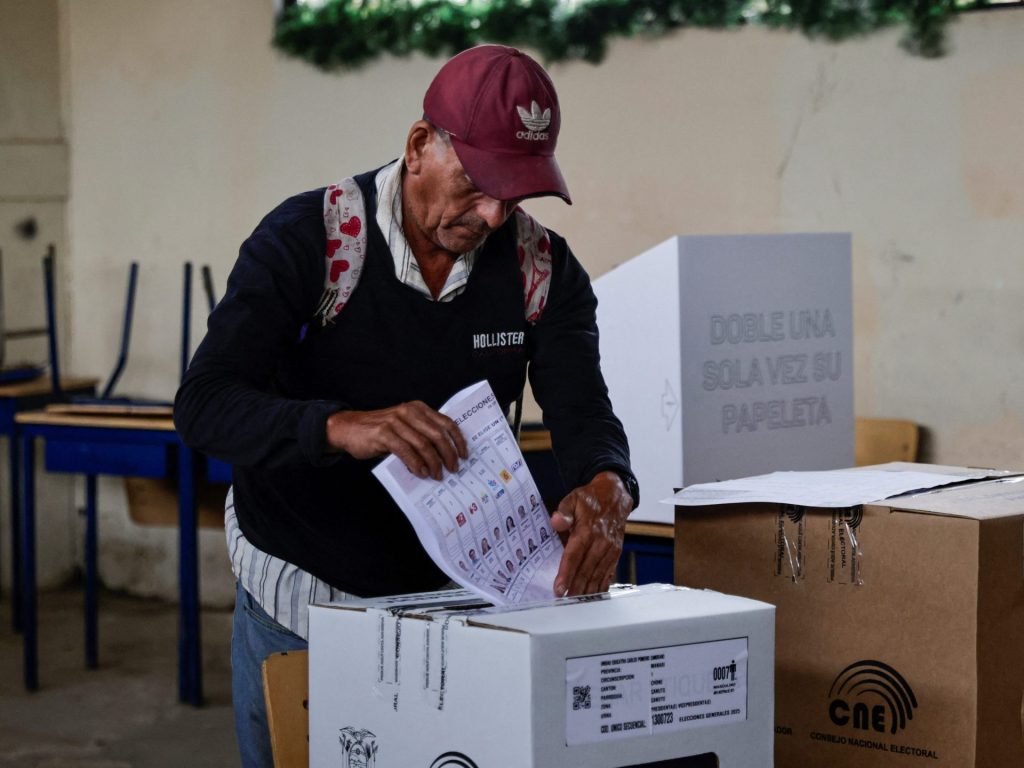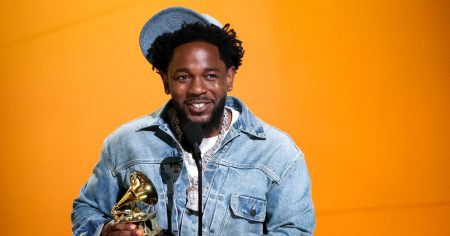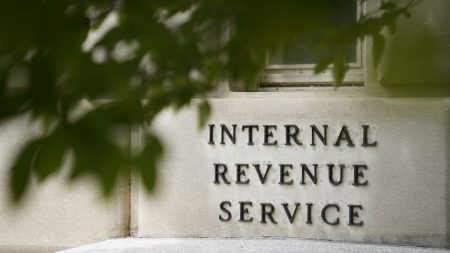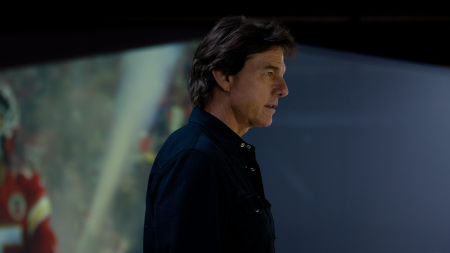Ecuador is bracing for a pivotal presidential election, with incumbent Daniel Noboa seeking re-election and facing stiff competition from his main rival, Luisa Gonzalez. The race has been dominated by two critical issues: a spiraling security crisis and an economy in peril. Polls opened at 7 a.m. local time on Sunday and are set to close 10 hours later, with 15 candidates vying for the presidency. Noboa, the 37-year-old son of a billionaire banana magnate, has been in office for just 14 months, having been elected to complete his predecessor’s term in 2023. His hard-right, iron-fisted approach to crime, known as “mano dura,” has been a central theme of his campaign and is widely seen as a key factor in his projected lead in the polls. Gonzalez, a 47-year-old left-wing lawmaker and protege of former President Rafael Correa, is Noboa’s top challenger. However, she faces an uphill battle, as polls suggest she would need to significantly outperform her current standings to overtake the incumbent.
The election comes at a time of profound crisis for Ecuador. In recent years, the country has been gripped by cartel turf wars and drug trade-related violence, transforming it from one of the safest nations in the world to one of the most dangerous. The economy has also been in decline, with the country likely entering a recession last year. These dual challenges have dominated the campaigns, with both Noboa and Gonzalez offering starkly different visions for how to address them. Noboa has doubled down on his hardline security policies, arguing that his deployment of the military on the streets and in prisons has helped reduce violent deaths by 15% and led to a significant decrease in prison violence. At a closing campaign rally in Quito, Noboa declared, “Today, Ecuador has changed and wants to keep changing, it wants to consolidate its triumph. This Sunday, reclaim your ability to dream.”
However, Noboa’s opponents argue that his approach has not gone far enough to address the root causes of the violence. Gonzalez has pledged to take a more holistic approach, combining military and police operations with social spending in the most violent areas. She has also vowed to tackle corruption within the judiciary, arguing that a comprehensive response to crime must include social justice. “We can’t talk about controlling violence without thinking of social justice, of building an Ecuador with peace, not with war,” Gonzalez said. Her campaign has emphasized the need for a transformation that addresses both the symptoms and the underlying causes of the crisis.
Despite his hardline stance, Noboa’s presidency has not been without controversy. Human rights groups have accused his administration of abuses, including the murder of four boys whose charred bodies were found near an army base. Analysts suggest that while Noboa’s tough-on-crime approach has resonated with many voters, it has also failed to fully address the escalating violence. In January, Ecuador recorded a grim milestone: 700 homicides in a single month, the highest in the world. This has led some to question whether Noboa’s “mano dura” strategy is effective in the long term. Nevertheless, recent polls indicate that a majority of Ecuadorians are willing to support a strongman leader, even if it means sacrificing some democratic freedoms. As analyst Omar Maluk noted, “They still want a strong man who shows no weakness or sensibilities, even if these measures have mostly failed so far.”
The economic crisis has further complicated the race. Noboa has turned to the International Monetary Fund (IMF) to secure a $4 billion fiscal aid package, a move that has drawn criticism from some quarters. Gonzalez, seeking to reassure voters, has stated that the IMF is “welcome” to assist, but only if its policies do not harm working families. Her comments reflect a broader concern about the impact of austerity measures on ordinary Ecuadorians, who have already been hit hard by the economic downturn. The interplay between the security crisis and the economic struggles has created a perfect storm, with both candidates vowing to restore stability and prosperity to a nation in turmoil.
If no candidate secures 50% of the vote, or fails to achieve a 40% plurality with a 10-point lead over the nearest rival, the election will head to a second-round runoff on April 13. As Ecuadorians head to the polls, the stakes could not be higher. The vote is not just a choice between two candidates but also a referendum on the direction of the country. Will voters opt for the continuation of Noboa’s hardline policies, or will they embrace Gonzalez’s vision of social justice and reform? The outcome of this election will shape Ecuador’s future, as the nation grapples with its worst crisis in half a century.












